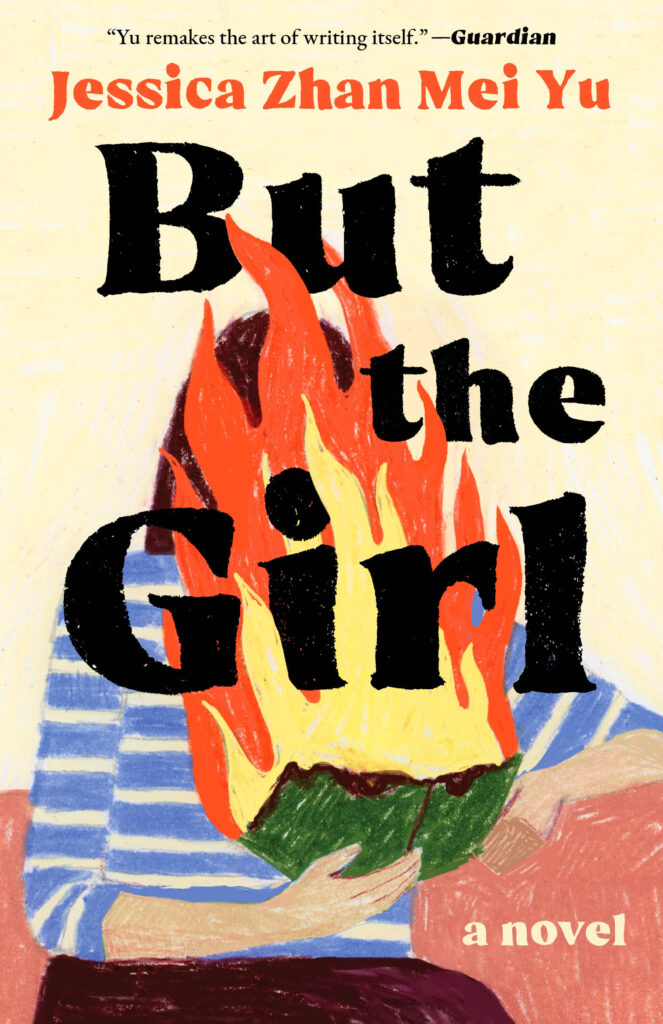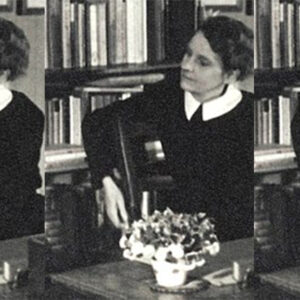
My Ah Ma told me all the time that she loved me. Though I don’t know if you would call ‘love’ what she called ‘love’. ‘Love’ is such a promiscuous, easy word in English. The ‘love’ in I love tomatoes is the same ‘love’ in to love and to cherish, until we are parted by death. It’s strange and unnatural to say that unsayable word in Chinese unless you are a crying actress in a soap opera or a pop star with a new single to promote. Love is expressed in Chinese the way a poet writes about flowers – slantwise, in riddles, in rhymes, coyly. You have to read between the lines, be an intelligent interpreter of literature, to really understand it. Sometimes you have to read against the grain of the author’s intention and sometimes you think you’re crazy for imagining that love is even there. So, it’s hard to explain what I mean when I say she loved me – or as she said when she was especially angry at me – she sayang me.
I remember feeling the empty ‘oh’ of loss and recognition when a teacher in primary school asked us to describe our grandmothers. This was the kind of masak masak that my parents said happened in Australian schools. Sitting around talking about grandmothers when there was real work to be done. Taylor, a girl who was more freckle than skin, said that her grandmother made the best apple crumble. And then a boy I don’t remember much more of said something about lemon drizzle cake. And another girl mentioned honey joys. Foods with childish but lovely names that sounded like a person was eating the sun. And I wondered why my grandmother had never so much as opened the oven in our house. She certainly hadn’t made anything with a silly, careless name like drizzle or crumble or joy.
When Ah Ma really cooked it was a long and bloody affair. For New Year’s Eve, she bought a live duck, and killed and drained it in the backyard. The next day she sat on the cement steps of our backyard plucking the feathers off one by one. Her day-to-day cooking was inevitably fried over a huge greasy pan on the gas stove in the backyard that blew out an ugly smog that choked you. As she cooked, she opened her fist and gave me Spam sliced up and fried as a snack. Campbell’s Chicken Soup boiled over the big fire with chopped-up frankfurters floating along inside it. Fried ikan billis with peanuts and sambal so spicy that just the smell made me cry.
Ah Ma was not the benign, cotton-wool-haired grandmothers of the other kids. She didn’t knit scarves or bake cookies or whatever other aesthetically pleasing and completely unnecessary housework they did. She pulled weeds out of the ground with her hands, the wrinkles in her palms caked with black dirt; swept up the flame-like petals of the magnolia tree as they decorated the grass and threw their beauty into the red bin; knelt down onto the wooden floors and washed them with a rag cloth; ironed shirts with mathematical precision; burned rubbish; pulled clean clothes out of my cupboard to wash them; gossiped about my mother on the phone to whoever would listen; watched TV covertly when she was sure that my parents were out for a while; basically did everything a live-in maid from the middle of Malaysia would do, which is what she had been for most of her adult life. Ma told me that she had tried to tell Ah Ma that she no longer had to earn her bowl of rice, but she didn’t believe her. She told me and anyone who would listen that my mother oppressed her, used her as free labour and held her housework to impossible and irrational standards, essentially she thought that my mother had made her life hell. She believed that she was still a kind of servant; of the house but not in it, essential to our lives but peripheral to them. She still didn’t really know how much she meant to me even now – a second mother, a third parent, a thorn in my flesh that I would never remove.
She was a hard, brown-skinned woman with a bad temper. Her stamina for anger made me think of Eliud Kipchoge. Her focus and motivation made the mental and physical discipline of bitterness feel like an athletic feat. She would get so angry with me sometimes that she would scream at me for hours. But she never stopped the housework for me – she would rant and rave while washing the dishes I had dirtied, hanging the clothes I had worn and pulling the weeds from the grass that I played on. If I ran inside the house to avoid her, quietly sliding the glass door behind me, she would scream louder so that I would still be able to hear her, and the neighbours too. Sometimes she wasn’t angry with me – it was Ma or, occasionally, Ikanyu that she was screaming about. But she still wanted me to hear her.
Sometimes I made her laugh. I was a kid, after all. But she felt that showing me her smile was like going out naked. As the laugh faded from her face she told me that she would punch me in the face and then I would know. This knowledge she was always trying to thrust onto me – what was it? An understanding of how the world’s hard face wouldn’t soften for me or something like it perhaps. She would laugh and laugh and then she would threaten to hit me and I would know that I was her favourite thing in all the world.
Being old and having worked too much, she was always in some kind of pain. She had gout which swelled her feet and legs, so they glowed with a raw shiny hurt. She had arthritis in her hands which made the housework she did everyday a ritualised torture. She had a heart condition which made her clutch her chest when we walked to the supermarket. She had slipped and fallen once while washing the driveway with soap and water and blood had unspooled from her brain. She applied pain to her pain like a balm as she scrubbed her hands raw with a thick brush and soap to get the brown colour off. She took a kitchen knife to the balls of her feat to remove the hard grey skin. I would walk into her bedroom after dinner and find her cutting at her feet, bleeding in her bedsheets, and watching Burke’s Backyard. She grimaced but she never said anything because she was afraid of hospitals and doctors and death. She was kiasi.
The orchids were the only thing she really loved. But they almost never had the chance to bloom because she pruned them every day, lovingly cutting them back to nothing. Twenty-six black plastic pots that only sprouted long, green leaves all year around. If I played outside, she would hover around me, telling me not to go near them. They were a kind of dangerous magic, the orchids. Anything could happen around them.
There was only one year that I remember them blooming. I was six in Australian years. Seven in Chinese years, as Ah Ma would say. A single string of white orchids with a streak of dried blood in the middle. I wanted them so badly, but I left them alone like she said to. I lay outside on the grass instead, watching the sky while she hung clothes on the line, but she told me I would get my clothes and hair all dirty and then who would be the one to get in trouble with Ma? Who would be the one to have to wash them? Har? Har? I tried to help with putting the washing on the line but she told me I didn’t know how to do it right. She rearranged the clothes I had put up so that the underwear and bras were better hidden by the bigger items – shirts and pants and towels. I ran inside and began pulling tissues out of the box on the coffee table, ripping them up and shaping them to make them into airy, white, tiny sets of clothing – day dresses and slips and gowns. They were beautiful. I loved clothes from such a young age and the beautiful women in the magazines who wore them. I saw them as a portal to another world that I would enter when I was grown.
Ah Ma came back in the house with an empty basket. She looked for me and found me sitting on the floor by the coffee table with my ‘clothes’. I looked up at her and that’s when I saw the mess I had made. Tissue-paper fragments had fallen everywhere like new snow, and I knew I wouldn’t get away with it. She came over and ripped up the clothes I had made, screaming about how she had turned away for only a second and already I had made the house look like kiam chye and who would pay for it? Her. I was crying because she was always ruining everything. And then she began cleaning up the mess I had made ostentatiously as if to show me how much my very existence oppressed her. That was it. I ran to the garden and there were the white orchids looking at me. I took them into my hands and ripped them up into tiny pieces except one which I saved and wore in my hair like a woman from a shampoo advertisement. I looked into the mirror of the glass sliding door, admiring myself, when my reflection darkened and disappeared. Ah Ma snatched the door open and in her hand was her skinniest and longest bamboo ti nah. Skinny for speed and long for reaching my body as I ran. I ran and ran and ran all over the garden while she chased me and then I was backed up against the gate. I opened the gate to the front yard and ran onto the street and then the road. She was screaming my name and her brown skin had turned grey. A car skimmed past me and then another was honking at me – a sonic ‘no’ that terrified me. I ran back into the backyard and Ah Ma locked the gate while I cried. And then, as tired out as we both were, she still found it in her heart to beat me. I sayang you, she was saying as she did. You might think I hate you when I hit you. No. I sayang you.
__________________________________
From But the Girl by Jessica Zhan Mei Yu. Used with permission of the publisher, Unnamed Press. Copyright © 2024 by Jessica Zhan Mei Yu.


